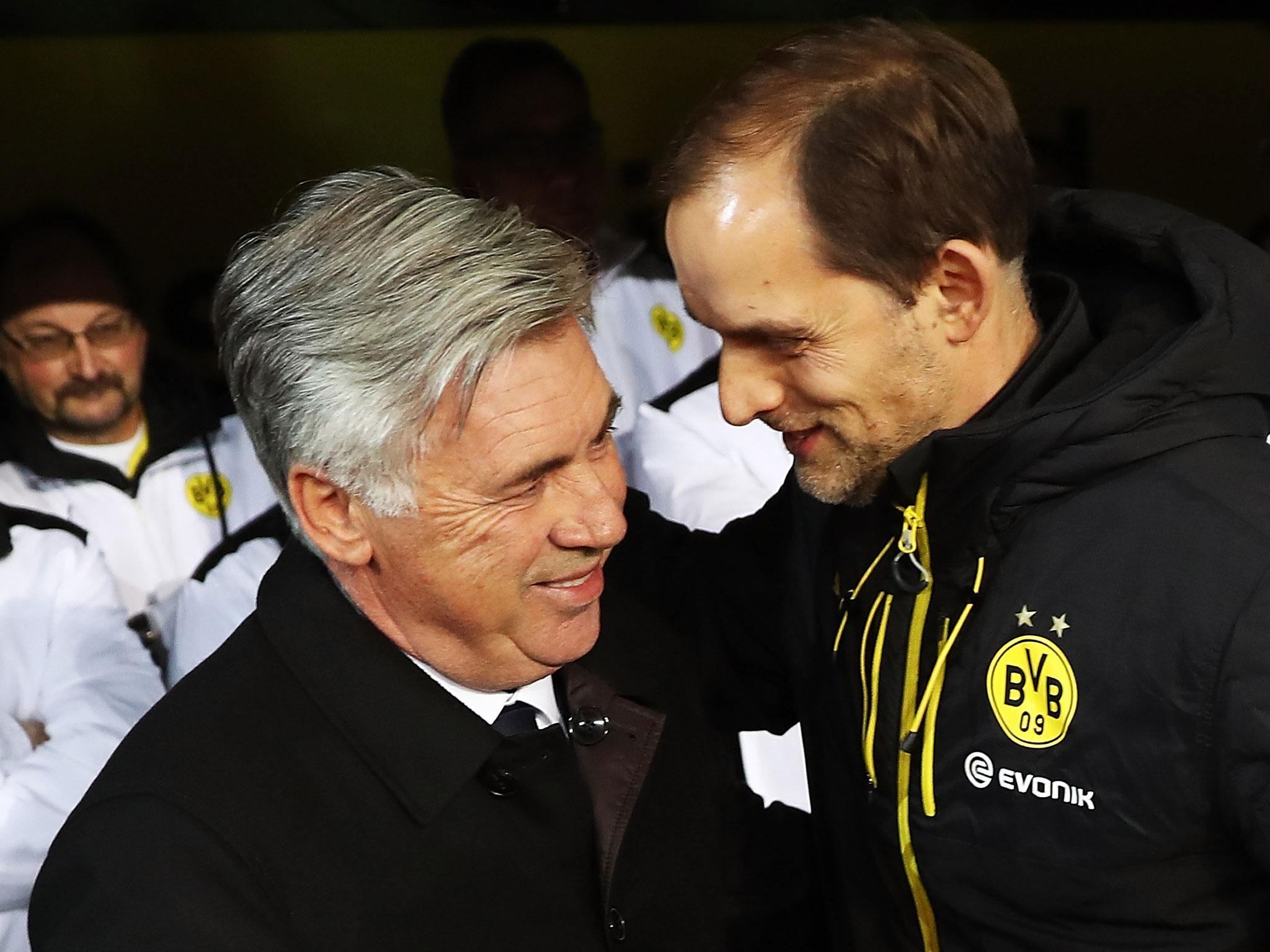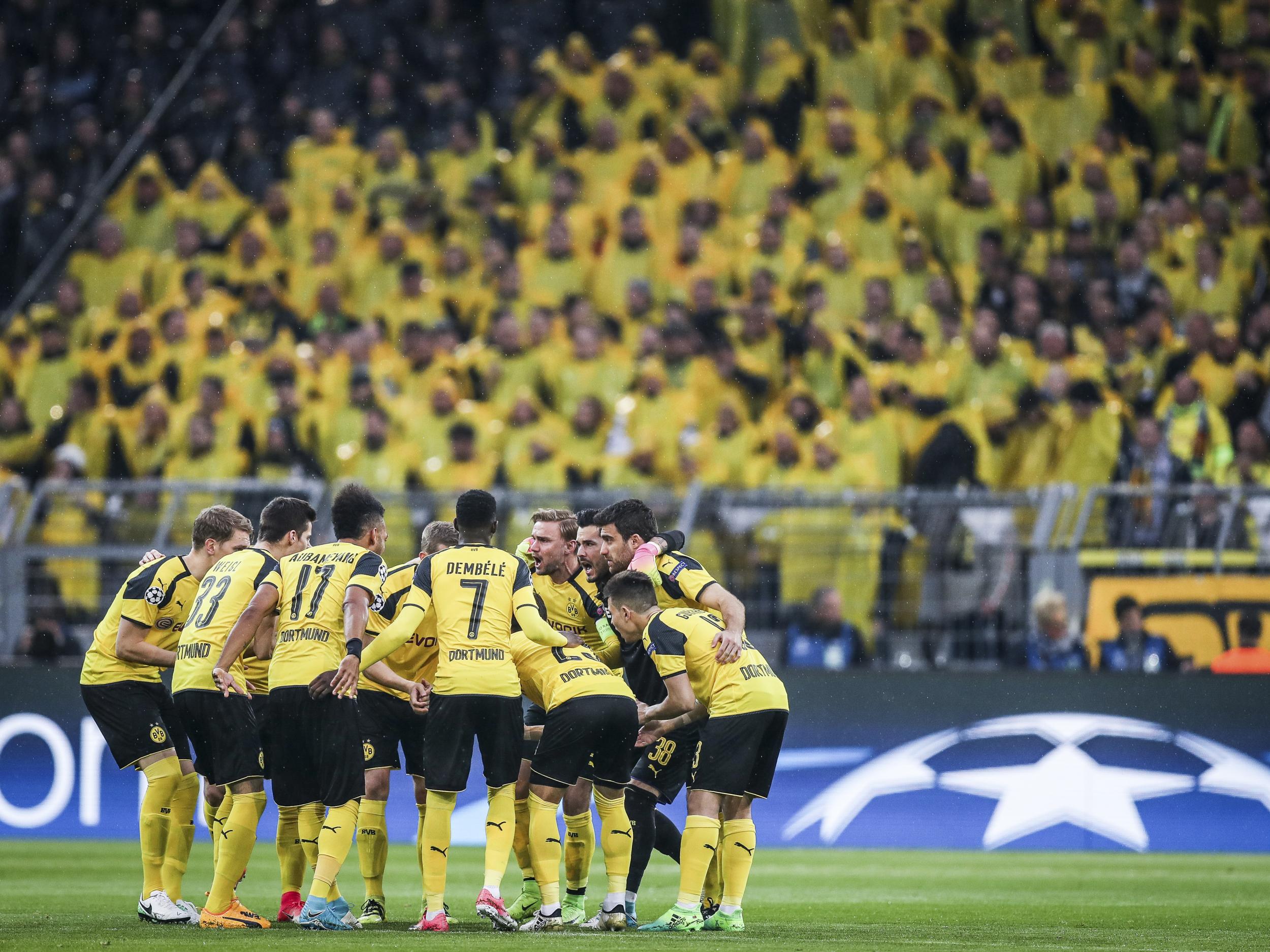Bayern and Dortmund face Mission Impossible - Champions League progression when you've lost at home
The entire history of the competition emphatically argues it is anything but - it has actually only happened six times in 61 years and eight months

It is one of the biggest puzzles in the entire annals of the European Cup and Champions League, but one Carlo Ancelotti and Thomas Tuchel must now somehow work out a solution to.
They must find a way to go through to the next round having lost a first leg at home.
If that initially sounds elementary, the entire history of the competition emphatically argues it is anything but. It has actually only happened six times in 61 years and eight months, and was achieved by the following teams:
1955-56 first round: AC Milan come back from 4-3 defeat to Saarbrucken to win 4-1 in the second leg and 7-5 on aggregate
1968-69 quarter-finals: Ajax come back from 3-1 defeat to Benfica to win the second leg 3-1, draw 4-4 on aggregate and then win a play-off 3-0
1979-80 quarter-finals: Nottingham Forest come back from 1-0 defeat to Dynamo Berlin to win 3-1 in the second leg and 3-2 on aggregate
1993-94 first round: Steaua Bucharest come back from 2-1 defeat to Croatia Zagreb to win the second leg 3-2 and go through 4-4 on away goals
1995-96 semi-finals: Ajax come back from 1-0 defeat to Panathinaikos with a resounding 3-0 to win 3-1 on aggregate
2010-11 last 16: Internazionale come back from 1-0 defeat to Bayern Munich to win 3-2 away and then go through 3-3 in away goals.
Put another way, there have been 309 ties in all that time when the away team has won the first leg, but a mere 1.9% of this have been overturned. That is a remarkably low percentage and means that, going by history alone, Bayern Munich and Borussia Dortmund have a minimal chance of eliminating Real Madrid and AS Monaco respectively.
But why has this been the case? Why shouldn’t it be just as easy for one of those teams to just go and win away, as the opposition did to them, especially when the teams are as genuinely evenly matched as this? That is specifically the case for Bayern, since allowances can obviously be made for Dortmund given the traumatic nature of their first leg. Had a few borderline moments in the Allianz Arena gone another way - like Arturo Vidal’s penalty at 1-0 - then we could be talking about Real having to overturn a 2-0 or 3-0 deficit, rather than looking to hold a 2-1 lead.
Some mismatches from draws - and the fact seeded and therefore notionally superior sides get to play the second leg at home - are obviously one explanation, but it is also something we have seen time and time again between big clubs of similar quality who would usually have no problem about the challenge of going to a rival’s ground and really going for the win.
Among the more notable recent examples are Barcelona winning 2-0 at Real Madrid in 2010-11, Manchester United winning 1-0 at Chelsea in the same season, United winning 3-2 at AC Milan in 2009-10 and Liverpool winning 1-0 at the Bernabeu in 2008-09.
It remains difficult not to put some of this down to the persevering psychological aura of the away-goal rule. Monaco and Real don’t just have the advantage of their respective 3-2 and 2-1 leads, after all, but also the double advantage of those strikes. That of course means Bayern and Dortmund don’t just have to win on the road, but start off knowing they have to win by two.
That’s a tall order for anyone, but particularly so when it’s at the home of a real power, who themselves have a psychological aura about them.

That’s why it feels like these ties are going to be played in the mind as much as on the pitch. Bayern for example must forget the fact that they need to win by two, or that they need to do it on the Bernabeu pitch, and just treat the second like they did the start of the first: like they are the better team.
But is this perhaps when this remarkable trend will finally start to transform? We are after all now well into an era where the elite European clubs are far more familiar with each other, play each other more often, and are more evenly matched to the point that home advantage doesn’t statistically matter as much as it did even 15 years, and certainly not as much in the 1960s when the away-goal was first brought in. Indeed, it was introduced precisely because teams were often so unfamiliar with the stadiums they were playing in or teams they were facing that their natural instinct was to start tentatively to just hold their ground. Uefa, in response, tried to encourage those same teams to come out and attack on the road.
There is of course no need for that kind of caution these days, and certainly not for Bayern or Dortmund. They have nothing to lose, and even the risk of conceding doesn’t hold the same weight, since they would not be away goals.
Join our commenting forum
Join thought-provoking conversations, follow other Independent readers and see their replies
Comments
Bookmark popover
Removed from bookmarks